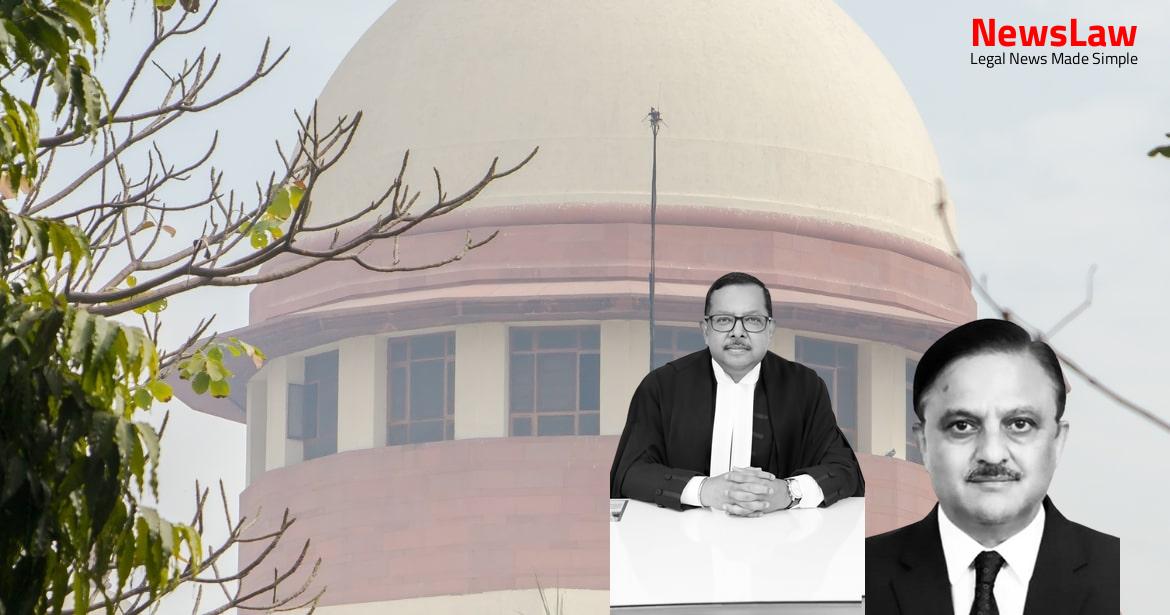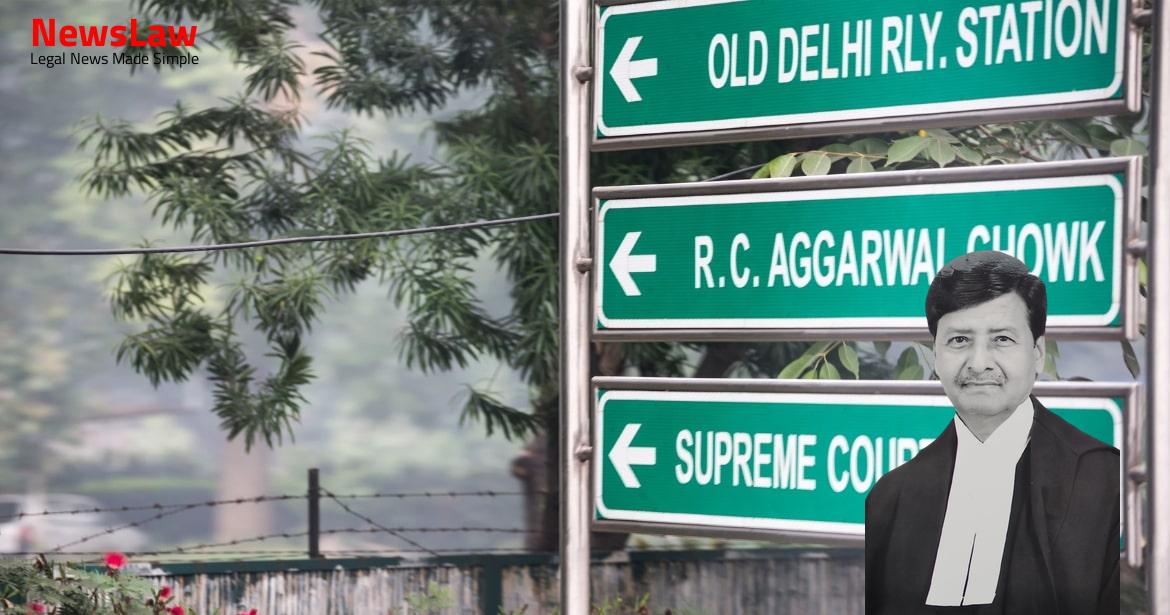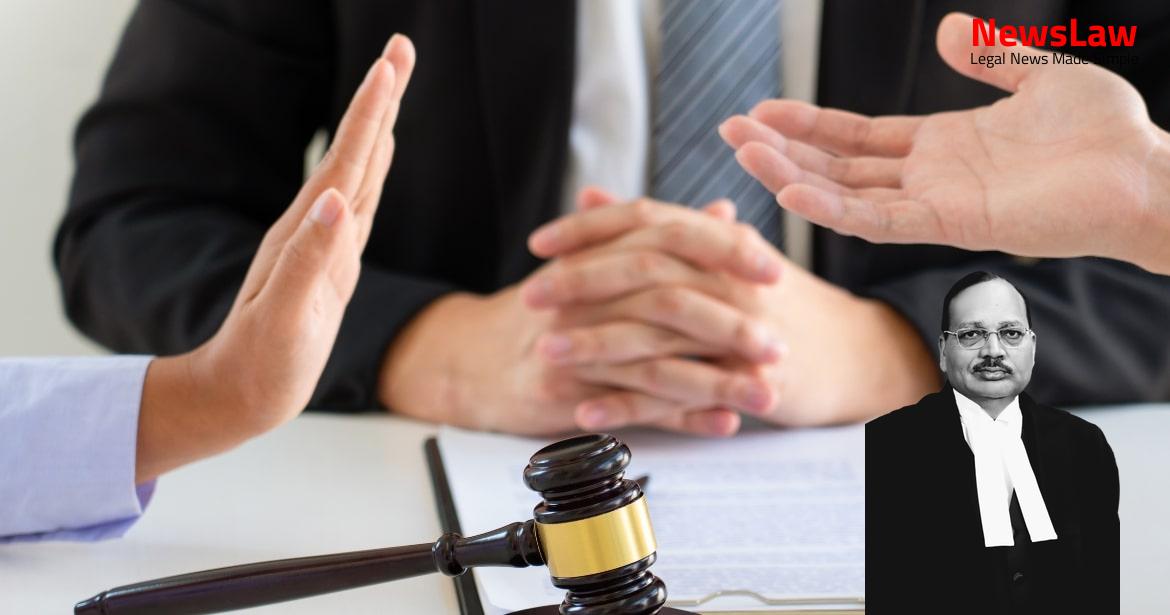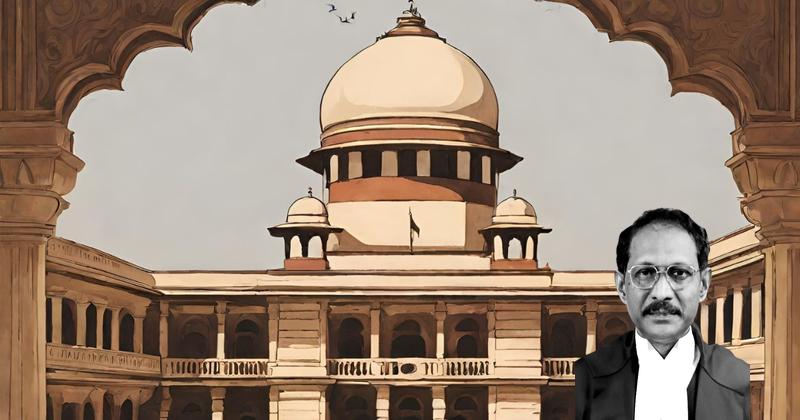In a significant ruling by the Supreme Court, the case of Parsi Dairy Farm vs. Local Tribals has been decisively resolved. The judgement tackles critical aspects such as demarcation of land, the impleadment of affected parties, and the legality of construction. This landmark decision sheds light on the importance of upholding legal rights and principles of natural justice for all parties involved.
Facts
- 1. The Compound wall construction was initiated to safeguard the suit property as per the consent terms filed in the Arbitration Petition.
- 2. Local villagers obstructed the construction multiple times despite requests for police assistance.
- 3. The High Court passed a drastic order allowing construction under police protection.
- 4. Certain tribals objected, stating their properties would be affected and demanded demarcation before wall construction.
- 5. Law enforcement authorities were directed to assist in the wall construction and ensure compliance.
- 6. The Division Bench faced criticism for not impleading affected tribals and passing orders based on submitted ‘Minutes of Order’.
- 7. Objections raised by review petitioners regarding legal rights and principles of natural justice not being followed.
- 8. Various government officials were directed to be present before the Court to address the issue.
- 9. The Superintendent of Police and Land Records officers provided statements ensuring proper access to landowners affected by the wall construction.
- 10. The dispute regarding the Parsi Dairy Farm lands and the need for survey compliance were highlighted.
- 11. A review application was filed following the construction commencement, opposition, and rejection of the March 2022 order.
- 12. A request was made for the Advocate General’s assistance in the matter.
- 13. Concerns were raised over political pressure on government officials regarding the case.
- 14. The necessity of resolving issues through demarcation and assurance to affected landowners was emphasized.
- The Division Bench dismissed the review petition by the impugned order
- The Court directed the State Government to comply with filing the affidavit within two weeks
- Petitioners were directed to provide sufficient access for other landowners affected by the boundary wall construction
- The Court noted that affected tribals were not given proper notice or impleaded as necessary parties
- The Minutes of Order signed by various advocates and government officers outlined the land involved in the case
- The Advocate General for the State of Maharashtra presented a plan showing the land in question
Also Read: Jindal Drugs Limited vs. Revenue Department: Labelling Activity as Manufacture
Arguments
- The learned senior counsel representing the petitioners before the High Court assured to provide details of parties mentioned in the Minutes of the Order by a certain deadline.
- An affidavit was filed by the respondents in compliance with previous orders, stating that the petitioners did not disclose the names of the parties referred in the Minutes of the Order.
- The appellant’s counsel claimed that the impugned order was illegal due to the non-joinder of necessary parties.
- The petitioners’ counsel was directed to confirm if they stand by their allegations against judges of the High Court, members of the Bar, and the Advocate General.
- Details about the construction of a boundary wall between March and June 2022 were provided in the affidavit, ensuring no inconvenience to any individual.
- The affidavit listed the land owned by Parsi Dairy Farm, along with names of other landowners adjacent to it, claiming that access to their lands remains unaffected despite the construction.
- The court repeatedly suggested to the learned senior counsel representing ARGUMENT RESPONDENT to remand the Writ Petition with a direction to implead affected persons.
- ARGUMENT RESPONDENT did not accept the suggestion.
- The learned counsel for ARGUMENT RESPONDENT and the State defended the impugned order by claiming that no one has been prejudiced due to the construction of the compound wall.
Also Read: M/s. Mount Shivalik Industries Limited vs. The National Company Law Tribunal
Analysis
- The practice of filing ‘Minutes of Order’ is unique to the Bombay High Court as a courtesy to the Court.
- An order in terms of the ‘Minutes of Order’ is not a consent order, but rather an order in invitum.
- The advocates have a duty to ensure that all necessary parties are impleaded to the proceedings before presenting the ‘Minutes of Order’.
- The Court must assess if third parties will be affected by the order sought in the ‘Minutes of Order’.
- If the Court deems that necessary parties were not impleaded, the petitioner should be allowed to implead them.
- The Court should decline to pass an order based on the ‘Minutes of Order’ if necessary parties are not impleaded.
- The ‘Minutes of Order’ should contain statements from officers’ affidavits and not solely rely on counsel’s representation.
- Advocates must ensure that an order in terms of the ‘Minutes of Order’ would be lawful before submitting it to the Court.
- In case the Court finds that an order based on the ‘Minutes of Order’ would be illegal, it should not pass the order.
- If all parties likely to be affected by the order are not part of the proceedings, the Court should defer passing the order.
- Courts may pass orders in terms of consent terms presented as ‘Minutes of Order’.
- The document must be examined to ensure the order is lawful.
- Orders in terms of ‘Minutes of Order’ are considered orders in invitum.
- The order dated 16 March 2022 in the Writ Petition is considered entirely illegal and must be set aside.
- Appellants are allowed to apply for impleadment.
- The High Court must consider the appellants’ application for impleadment to determine necessary and proper parties.
- The Division Bench of the High Court failed to conduct a basic inquiry into the potential impact on third parties due to the construction of the compound wall under police protection.
Also Read: Analysis of Supreme Court’s Judgment in Yash Tuteja & Anr. v. Union of India on PMLA Complaints
Decision
- Parties to the petition must be determined by the Court.
- Construction of the compound wall by the 1 and 2 respondents is subject to the final outcome of the petition.
- 1 and 2 respondents must implead all necessary parties to the petition for final decision in accordance with the law.
- Construction of the compound wall, complete at present, will be subject to final decision.
- If appellants have initiated proceedings based on complaints, they will be disposed of.
- High Court, after remand, must order restoration of status quo ante and require respondents to implead necessary parties.
- If necessary parties are not impleaded by 1 and 2 respondents, the High Court can dismiss the petition and order demolition of the compound wall.
- Assurance given by appellants not to press complaints against specific parties.
- Order to set aside previous orders and restore the petition to the High Court for further proceedings.
- Direction to list restored petition before the Bench after summer vacation, with parties required to appear without further notice.
- Appellants can seek impleadment in the petition on all available grounds.
- High Court, post remand, to determine if all necessary parties for construction impact were impleaded.
- If construction found illegal or adversely affects third parties’ rights, High Court may order demolition.
Case Title: AJAY ISHWAR GHUTE Vs. MEHER K. PATEL (2024 INSC 353)
Case Number: C.A. No.-004786-004786 – 2024



